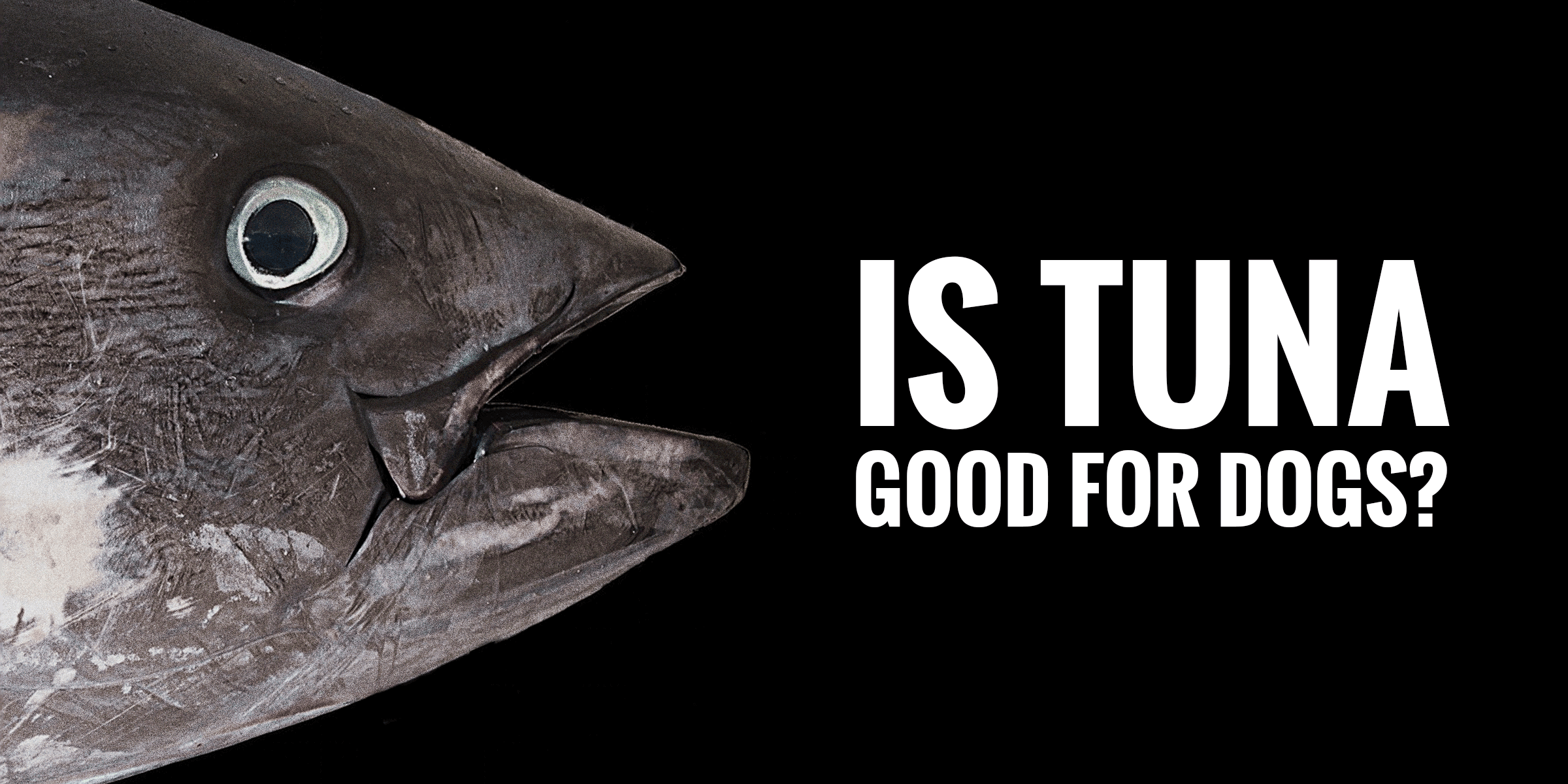Is tuna good for dogs and is tuna a safe fish to give to dogs? The short answer is yes, as long as you keep an eye on what’s added to that tuna (sodium, spices, sauces, etc.)
Many people keep asking whether Tuna is good for their dogs or not. If you one of them, then worry no more because you have come to the right article.
Can Dogs Eat Tuna?
Yes, dogs can safely eat tuna fish without experiencing any issue in the long run. Tuna fish comes with many health benefits and this is one of the reasons why many dog owners have switched to it.
It is advisable to regulate the amount of raw tuna you are going to provide to your dog in order to avoid turning tuna fish into a health hazard if the dog is going to eat too much of it; especially with risks of excess mercury and excess sodium.
What Kind of Tuna Should You Feed Your Dog?
Dogs have the ability to handle both cooked and raw tuna fish.
In case you want to provide your dog with raw tuna fish, it is advisable to remove the bones. Bones are likely to choke your pet thereby leading to injuries; in some cases, the bones can even kill the pet if they get stuck in the throat and perforate it. Let’s not be all dramatic, most dogs can eat boned fish without a problem but better be prepared than sorry.
On the other hand, if you decide to feed the dog on canned tuna fish ensure the canned tuna is packed in only water and not any other thing such as oil, tomato sauce or seasoned water.
Tuna fish packed in oil or sauce is not recommended for dogs because it adds extra calories to your dog thereby increase the possibilities of obesity that can cause him more harm than good. Plus, you don’t control all the ingredients that go in there and some may be dangerous for pets to consume. Indeed, on some occasions, canned tuna fish has added flavors including spices that should not be given to your dog. The digestion of the spices can pose a health hazard to the dogs over time hence they should be avoided by all means for the sake of the health of the pet.
Canned tuna is a great and cost-effective option, simply make sure before buying it that it only contains Tuna fish, water and allowed additives (broth, salt, etc), like Bumble Bee Premium Light Tuna.
How Much Tuna Should You Give Your Dogs?
Since tuna contains higher levels of mercury than any other type of fish out there, it is wise to regulate the amount your offer your pet. Tuna fish should be given to your dog in small amounts to maintain his or her health.
Canned tuna fish usually has high levels of sodium because of the added salt. Sodium comes with several side effects on the health of your dog if consumed in excessive quantities. It is recommended that you track the reactions of your dog whenever you feed him with canned tuna. It is generally fine but better be cautious!
Start gradually by adding a quarter or half the can once a day for example. Increase gradually and only continue feeding your dog with tuna fish if he does not show negative signs.
In case of any sort of unusual reaction, it is good to seek help from a professional or simply remove tuna from your dog’s diet. Remember that dog stomachs are easily upset when new ingredients are introduced; this is why you should do it gradually.
Benefits of Feeding Dogs With Tuna
Tuna fish comes with various health benefits to your dog, including the high ratio of protein vs fat and carbohydrates, essential minerals and electrolytes.
Tuna is a wonderful source of lean protein. Lean protein assists in the growth of muscles and are part of what dogs were meant to eat when they were wolves. This means that your dog’s diet will lose in fat which is a great thing for most dog owners out there who usually overdo fats.
Tuna fish is rich in essential minerals such as magnesium, phosphorus, selenium, and potassium. Tuna also contains essential vitamins including vitamins B3, B6, and B12 among others needed for the healthy growth of your dog’s skin, immune system and brain functions.
The fish has high levels of Omega-3 fatty acids which are very helpful in your cardiovascular health as well as the reduction of inflammations. Furthermore, Omega-3 fatty acids improve the skin condition of dogs by reducing itchiness and regulating the levels of cholesterol.

Can Dogs Take Tuna Juice?
Yes, dogs can also consume tuna juice. However, you should ensure that you provide them with smaller amounts of the juice since large amounts are likely to pose much danger to your pets because of the high sodium content. Furthermore, you should know that the digestive system of dogs is more sensitive when compared to that of human beings hence you should be careful and never go all-in into anything new.
In summary, tuna fish is among the most nutritious and healthy foods for dogs. Tuna fish contains many nutrients including vitamins and minerals needed for the healthy growth of your dog. However, you should regulate the amount of fish you give to the dog in order to slow down the aforementioned downsides.

